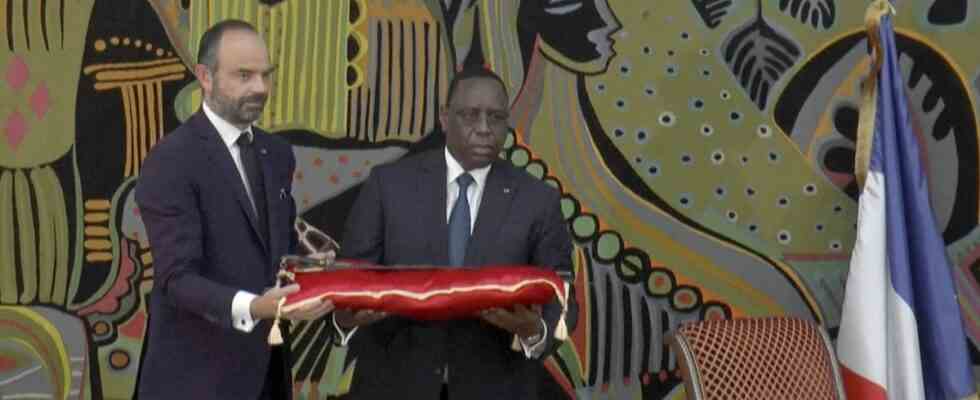Should the stolen art from the colonies be returned to Africa – or should it remain in Europe’s museums? This has been discussed for almost five years now. And if the debate has died down a bit recently, it is not so much because interest has waned, but because most European countries have understood that returns are right and inevitable. The topic has migrated from the feuilleton into government statements, into coalition agreements and into the correspondence of ministries and museum administrations. First larger returns like those of France to Benin have already taken place. The Arte documentary “Restitution? Africa demands its art treasures back”, the focus of an Arte theme evening on “Museums and Colonialism”, is therefore coming a little late.
On the other hand, a year or two ago, when the fighting was still in full swing, director Nora Philippe would have had a hard time making a film that confidently allowed itself to be one-sided: for restitutions. The few opponents of restitution who have their say here represent a kind of Western arrogance that has become as outdated as the old-fashioned color television colors in the recordings from the 1970s.
By doing without the otherwise usual opinion ping-pong, Philippe gains the space she needs to tell the story of art theft, colonial propaganda, and the demands for restitution calmly and with the help of great archive material. It also allows her to let African museum people have their say instead of European ones.
To this day, the “rescue narrative” holds true: Africa is not in a position to preserve its art
The large-scale robbery began after the Berlin Africa Conference of 1884 and 1885, when the colonial powers divided up the continent among themselves and its rampant exploitation reached its peak. Ethnological museums were built all over Europe for scientific and propagandistic purposes. Filling these with as many objects as possible became an integral part of the colonial program alongside the plundering of the country, the subjugation, enslavement and proselytizing of the population.
In a report to President Macron, Bénédicte Savoy recommended extensive returns of stolen art.
(Photo: Cinétévé)
The colonial powers resorted to a concept that had previously been introduced in Europe, a “perverse algorithm” as it is called by Bénédicte Savoy, the French art historian who teaches in Berlin most important protagonist of the restitution debate. When Napoleon’s troops occupied Belgium, Flanders and then the German-speaking countries, they took with them as many paintings, statues, manuscripts as they could carry. “It was about freeing art from the gaze of the despots and bringing it to the land of freedom, that is, to France,” she explains. “Since the revolution, the French have accused others of not treating their art well. Only French museums with their specialists are able to preserve the heritage of humanity, they said.” It was the birth of the “salvation narrative” that persists to this day, the claim that Africa produced great art, but only Europeans are capable of preserving it for humanity.
It was on this basis that art was brought to Europe, and on the same basis that many newly independent African countries were rebuffed when they reclaimed it in the 1960s and 1970s. Only Savoy did with her last a book this hitherto little-known prequel to today’s debate publicly. Philippe now provides the fascinating recordings: historical interviews and speeches, for example by Senegal’s first President Léopold Sédar Senghor or by the first African UNESCO Director General, Amadou-Mahtar M’Bow. And scenes from the African cultural festivals where the continent began to remember its own strength while acknowledging the loss of most of its cultural heritage – which still resides in Western museums.
Theme evening “Museums and Colonialism”, Tuesday April 5, Arte. “‘The savages’ in the human zoos”, 8:15 p.m. “Restitution? Africa reclaims its art treasures”, 9:50 p.m. “From Dakar to Djibouti – Big booty for the Musée de l’Homme”, 11:15 p.m.

